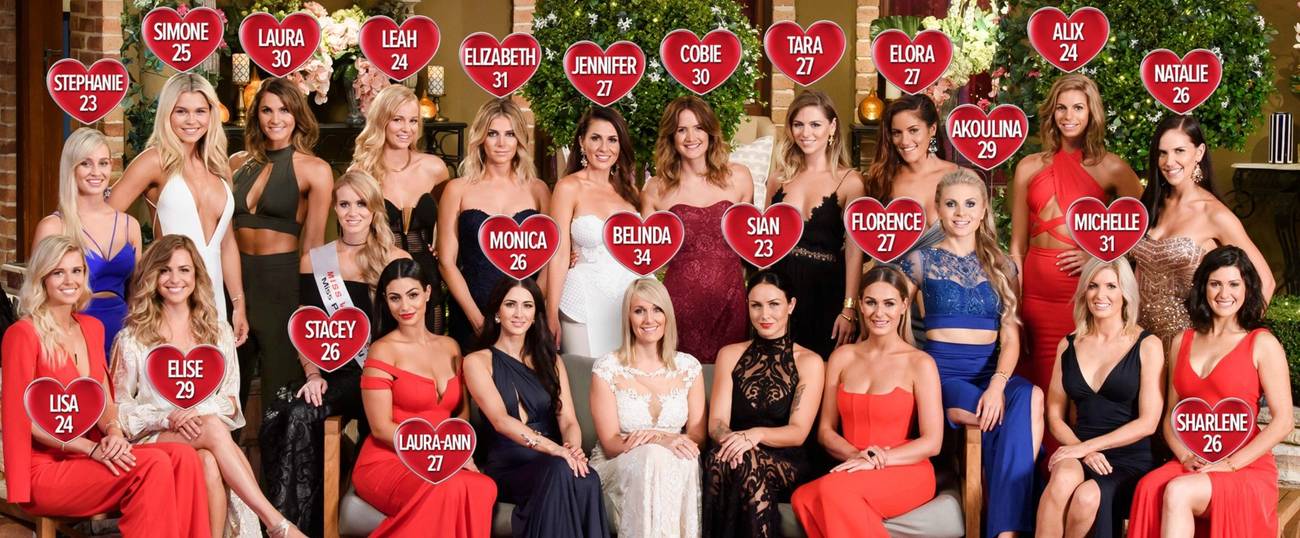On Australia’s ‘The Bachelor,’ Talk of ‘A Jewish Banana’ Sparks Accusations of Anti-Semitism
For better or worse, reality TV is where much of the conversation about Jewish identity takes place these days




A contestant on Australia’s The Bachelor slammed her competitor’s outfit in an episode that aired last Thursday, calling her a “Jewish banana.”
Florence Alexandra Sophia responded to accusations on her Instagram picture that her words were anti-Semitic. “It was purely that Jen’s yellow suit reminded me of a banana peel and her little hat of a kippah,” she wrote in the comments. “Never meant it in a bad way or negative way so I have to disagree on the antisemitic [sic] part, especially because I have a Jewish best friend and I am very open to and respectful of any religion and ethnicities.”
The “I have a Jewish/black/other-minority friend” excuse is, of course, famous for being the worst defense against claims of bigotry. And it’s unclear whether the recipient of this strange dig, fellow contestant Jen Hawke, is even Jewish. But while this tempest in a teapot will likely blow over soon, it’s a good reminder that, for better or worse, much of our contemporary conversation about Jewish representations in popular culture happens on reality TV.
Sure, the genre is “the very subway floor of human creation,” but it still attracts millions of viewers the world over, and so when the question of Jewish identity arises on one of these shows, even briefly, it’s fair to ponder into its deeper meaning.
Consider, for example, another reality show that pits women against each other: The sixth installment of The Real Housewives, this one based in Beverly Hills. It features a number of Jewish women, and in 2014, one of these Jewish women, Carlton Gebbia, made snide comments about her co-star, Kyle Richards, in reference to Richards being a convert to Judaism. Were Gebbia’s digs anti-Semitic? Rachel Shukert, Tablet’s pop culture columnist, had a more nuanced view:
Kyle, no matter how loudly she espouses her daughter’s bat mitzvah or her love of the Star of David—which everyone loudly agrees is a “beautiful,” “spiritual,” “meaningful” symbol—has no idea what it’s like to be an oddball, to know you don’t quite fit in, to be in the minority. Kyle went from being a semi-practicing Catholic to a semi-practicing Jew. In Beverly Hills. Unlike some of us, who grew up Jewish in, shall we say, less Semite-concentrated parts of the country (or even the city), Kyle has never had to parse people’s questions, to laugh uneasily at their jokes, to pretend you don’t notice that literally the only thing this other person is thinking about is how you’re different from them.
Questions of difference also came up with Daniel Eichholz, an Orthodox synagogue member who studies Torah and who served as the “Other” in Southern Charm Savannah. Is being an Orthodox Jew a real hallmark of diversity? Or was Eichholz just another white, religious cast member in a show full of them, even if all of the others were Christian?
The question, of course, is about more than just the show. It’s about America, and the place Jews, a largely assimilated bunch, play in its culture. The same question, in different variations, comes up whenever a Jew appears on a reality show. When Jewish lawyer and Bachelorette Andi Dorfman had her 15 minutes of fame, for example, some critics pondered what it means for a Jewish woman to strive not for equality, Ruth Bader Ginsburg-style, but for reaffirmation of traditional gender roles. And when 12-year-old yarmulke-clad Josh Orlian performed a racy stand-up set on America’s Got Talent, some argued that wearing a kippah automatically makes you a representation of all religious Jews and that off-color jokes were therefore a bad idea. These are precisely the sort of discussions Jews have been having with each other for a very long time, but now, thanks to reality TV, they’re part of the larger cultural conversation.
Is that a good thing? And how are these reality TV stars shaping the ways in which Jews are perceived? In true reality TV fashion, the only way to find out is to keep watching.
Sophie Aroesty is an editorial intern at Tablet.